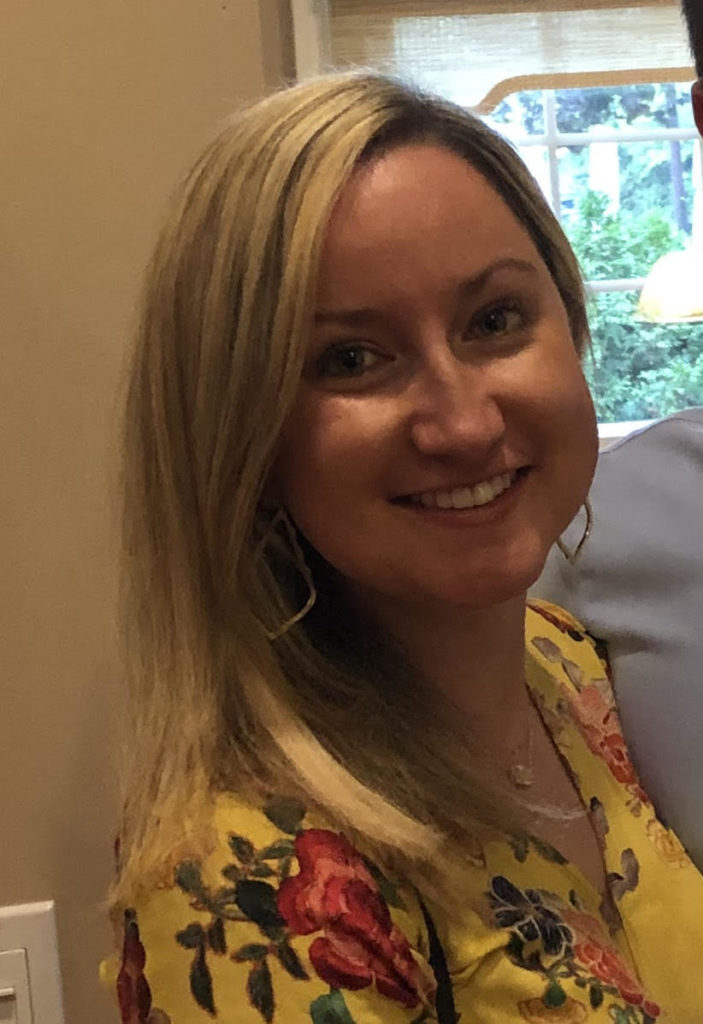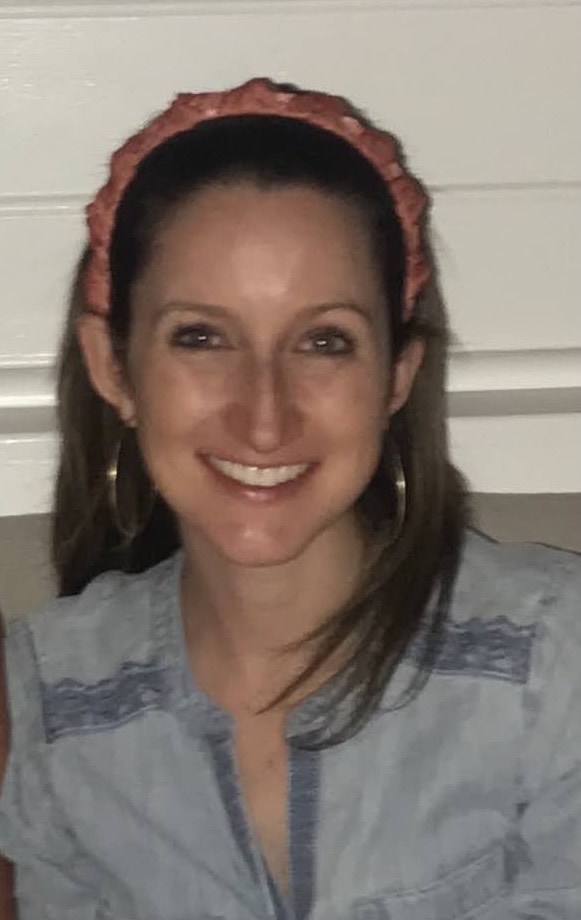My name is Bridget, and I’m a 31-year-old living in Chicago, IL. I was diagnosed with ectopic Cushing’s in August 2019 and am now a little over one-year post-op. I had a partial lobectomy to remove a malignant Cushing’s tumor on the lower left lobe of my lung. My ACTH and cortisol levels have remained low since surgery, meaning that the surgery was a success. I know that I’m one of the lucky ones – we found the tumor and had a successful surgery. Although everyone’s story is a little different, I still find unwavering connections with every one that I read. I am thankful to be able to share mine with you now.
In 2016, I started experiencing daily headaches. I consulted with doctors, tried different diets, and even underwent LASIK surgery after convincing myself that my contacts were the cause. Knowing it was a common ailment, I wasn’t concerned that an underlying health issue could be to blame.
The headaches continued, and then in early 2018, I started experiencing crippling anxiety and sought help from a psychiatrist. I was getting married later that year and my psychiatrist suggested that the underlying stress could have caused this “episode”. While I didn’t think I was harboring stressful feelings about my wedding, I accepted that it could be the cause and started taking anti-anxiety medication.
Shortly thereafter, I noticed I was gaining weight and my face became very round despite no change in my diet or exercise. I figured that it was an undesirable side effect of my anti-anxiety medication. Then, my hair started falling out. I went to my primary care doctor and started crying uncontrollably in her office as I explained what was going on. I told her that this is not what I’m supposed to look like. She told me that stress can have a big impact on the body, and that I should continue taking my anti-anxiety medication while searching for other ways to reduce my stress.
At this point, I blamed myself for what was happening. I thought that since I couldn’t control my stress, I was ruining my life and now my physical appearance. I cried almost every day. I worked out twice as hard and ate half as much. My weight didn’t budge. On top of weight gain, I was experiencing severe insomnia, night sweats, increased facial and arm hair, constipation, dizziness, acne (never had acne even as a teenager), and bruising.
A few weeks later, after worsening symptoms, I went back to my doctor convinced that I had thyroid issues. I had tests done that showed my thyroid was normal. My doctor referred me to an endocrinologist after I advocated for additional tests on my thyroid. Over the next few months, I saw two different endocrinologists who both confirmed my thyroid was normal and again spoke to me about stress. The second endocrinologist mentioned Cushing’s, but because I didn’t have some of the classic symptoms (purple stretch marks, hump, extreme weight gain), it was quickly ruled out. Regardless, I insisted on a cortisol test. She agreed to give me the test but said that she didn’t think I had anything wrong with me.
Over the next month, I took three tests which all confirmed my cortisol was extremely high. My endocrinologist then diagnosed me with Cushing’s. She said to me once again that I didn’t look like the normal Cushing’s patient. While I won’t go into too much detail here, it is worth mentioning that getting all the tests, waiting for results, and communicating with the doctor were not fast or easy tasks.
I was referred to Dr. James Findling, a Cushing’s specialist in Milwaukee. At my first appointment with him, he confirmed my Cushing’s diagnosis and outlined next steps. My next step was to undergo the inferior petrosal sinus sampling (IPSS) procedure. The results showed that my tumor was not located in the pituitary gland; my tumor was ectopic, or located somewhere else in the body, which meant that I needed to undergo a series of scans to locate it.
A few days later, I had CT scans of my chest, abdomen and pelvis. The results showed no tumor. At this point, Dr. Findling explained that we would next try a dotatate PET scan of my chest, but that if we didn’t see a tumor on this scan, I’d need to go on medicine to control my cortisol level and redo scans every six months until the tumor grew large enough for us to see it on a scan. At this point, I didn’t think we’d find the tumor and I was preparing myself for the latter.
The following week, I had my dotatate PET scan, and this time, a tiny nodule on my left lung lit up on the scan. It was nothing short of a miracle in my mind. I had my surgery on October 30, 2019. The surgeon ended up removing the entire lower left lobe of my lung. On top of being a Cushing’s tumor, the tumor was malignant and capable of spreading throughout my body. Though it was a slow-growing cancer, I am certainly happy that we caught it when we did.
Post-op, my ACTH/cortisol levels dropped dramatically, and they’ve remained low ever since. All the symptoms mentioned above have disappeared or reduced significantly. However, recovery has brought its own set of challenges.
The tricky part about recovery is that you start to look better but certainly don’t feel better. Weaning off hydrocortisone leaves you tired and achy beyond belief. I’ve reached out to many other Cushing’s patients in recovery which helps me feel that my struggles are a normal part of the process. I read in one patient’s story how they compare their mornings to a feeling of being hit by one, two, or three trucks. While most mornings I do feel as though I’ve been hit by at least one truck, my spirits are much higher than when I had Cushing’s because I know that I’m getting better.
I hope that my story can help someone else on their journey by providing hope, comfort, and/or education. Based on my experience, I have broken down my advice into the five bullet points below:
1) Advocate for yourself. Stress was an easy diagnosis, and had I not been more in tune with my body, I may have accepted that as the answer. It also helps to have others advocating for you. My husband was a huge help in calling doctors and making necessary appointments when I didn’t have the energy to fight anymore.
2) Be nice to yourself! Looking back, I may have suffered less had I not blamed myself for what was going on in my body.
3) Get a support system and lean on them. For me this meant being vulnerable and admitting that I wasn’t “okay” to my close friends and family. Having loved ones’ support throughout this journey is critical.
4) Make sure you have the right medical team: get second opinions, meet with different doctors and pick your team wisely. A friendly conversation with reception and a quick call back from your doctor can mean the world when you’re waiting on an important medical question or test result.
5) Give yourself time after surgery to return to normal. It is a long, tough recovery. Even more than a year post-op, I must be very selective as to how much energy I can exert in a day and devote lots of time to rest, relaxation, and sleep.
Good luck on your journey, I’m rooting for you and always remember, you are not alone!






Sorry, comments are closed for this post.